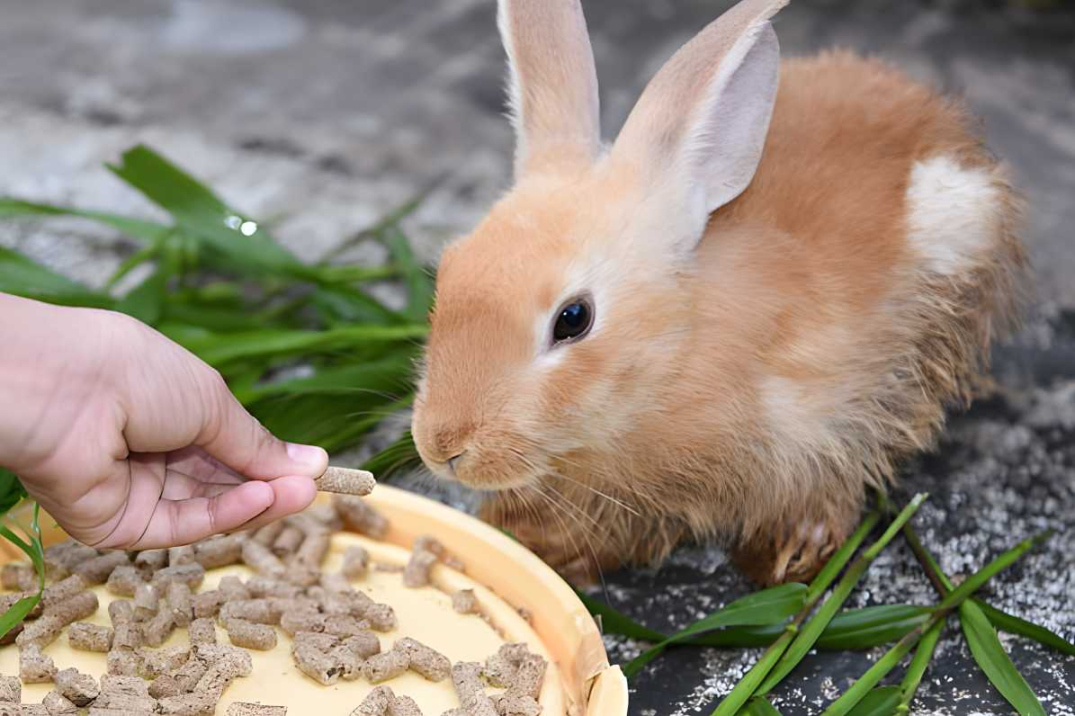How Long Can Rabbit Go Without Eating?
The Importance of a Rabbit’s Diet
Rabbits are herbivorous animals that require a specific diet to stay healthy and thrive. Their digestive system is designed to process a constant intake of fibrous plant material, such as hay and leafy greens. A rabbit’s diet should consist of at least 70% hay, along with a variety of fresh vegetables and a small amount of pellets. Proper nutrition is essential for maintaining their well-being and preventing digestive issues.

Normal Eating Habits of a Rabbit
A healthy rabbit typically eats throughout the day and night, engaging in a behavior known as grazing. They naturally have a high metabolism and their digestive system is constantly active. Rabbits have a unique digestive process that requires a constant supply of food to prevent complications. Their teeth also grow continuously, so chewing on hay and other fibrous materials helps wear down their teeth and prevent dental problems.
How Long Can a Rabbit Go Without Eating?
Rabbits have a sensitive digestive system, and without food, their intestinal functions can be disrupted. Unlike some other animals, rabbits cannot go without eating for extended periods. The maximum time a rabbit can go without eating depends on various factors, including age, overall health, and environmental conditions. As a general rule, a rabbit should not go more than 12-24 hours without eating.
Factors That Influence a Rabbit’s Ability to Go Without Food
- Age: Young rabbits, especially those less than three months old, have a higher metabolic rate and need food more frequently to support their growth. They should not be deprived of food for more than a few hours.
- Health: Rabbits with pre-existing health conditions, such as dental issues or gastrointestinal problems, may have even less tolerance for fasting. These rabbits are more susceptible to complications and require immediate veterinary attention if they stop eating.
- Environment: Stressful situations, such as a change in surroundings or extreme temperatures, can affect a rabbit’s appetite. It’s important to provide a calm and comfortable environment for them to encourage regular eating habits.
Consequences of a Rabbit Not Eating
If a rabbit goes without eating for an extended period, it can lead to serious health problems, including:
- Gastrointestinal Stasis: Also known as ileus, this condition is characterized by a slowdown or complete shutdown of the rabbit’s digestive system. It can result in gas buildup, bloating, discomfort, pain, and even death if left untreated.
- Hepatic Lipidosis: When rabbits do not eat, their bodies start breaking down stored fat to meet energy requirements. However, unlike many animals, rabbits cannot process fat efficiently, leading to a condition called hepatic lipidosis. This condition can cause liver damage and is potentially fatal.
- Dental Problems: Regular chewing helps wear down a rabbit’s continuously growing teeth. Lack of food can lead to overgrown teeth, malocclusion, and painful dental issues.
- Weakness and Dehydration: Without proper nutrition, a rabbit will become weak, lethargic, and dehydrated. These symptoms can further complicate their overall health and recovery.
FAQs
1. Can a rabbit survive without eating for a day?
Yes, rabbits can usually survive without eating for a day. However, it is crucial to identify the cause of their reduced appetite and ensure they resume eating soon. If a rabbit continues to refuse food for more than 24 hours, it is recommended to consult a veterinarian.
2. How can I encourage my rabbit to eat when they have lost their appetite?
If your rabbit has lost their appetite, you can try the following:
- Offer a variety of fresh, enticing vegetables to stimulate their interest in food.
- Ensure their environment is calm, quiet, and stress-free.
- Provide unlimited access to hay, which is essential for their digestive health.
- Consult with a veterinarian to rule out any underlying health issues.
3. What should I do if my rabbit stops eating completely?
If your rabbit stops eating completely, it is a cause for concern. Contact a veterinarian as soon as possible for a thorough examination. They will be able to determine the underlying cause and provide appropriate treatment to prevent further complications.
4. Can stress affect a rabbit’s appetite?
Yes, stress can significantly impact a rabbit’s appetite. Sudden changes in their environment, loud noises, or the presence of predators can cause stress and result in reduced food intake. To ensure your rabbit eats well, create a calm and secure environment for them.
Related Articles…
Copyright Notice:
Images displayed on this website are not our property, but are procured from the internet. If you hold copyrights to any image and wish for its removal, please get in touch with us.